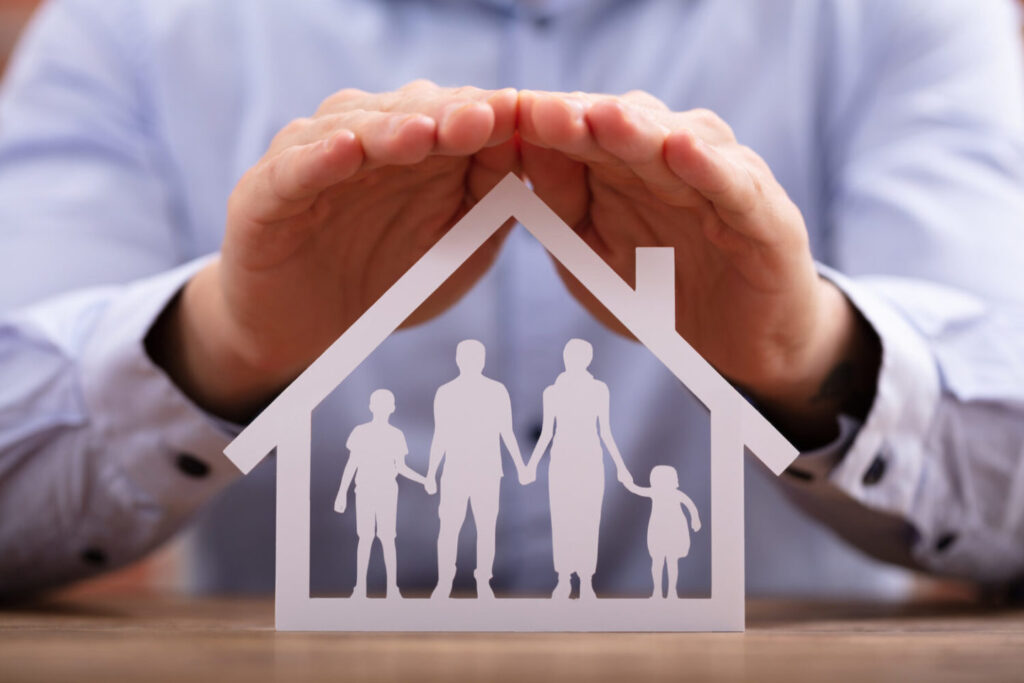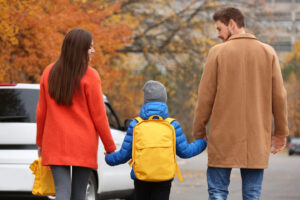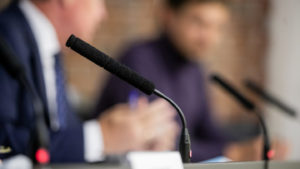Are Christian-schooled kids sheltered – or is it public school students?
Are Christian-schooled and homeschooled students sheltered from the “real” world – or are they merely being well-prepared to face it?
In many ways it’s both, those educators tell me. And,…

Are Christian-schooled and homeschooled students sheltered from the “real” world – or are they merely being well-prepared to face it?
In many ways it’s both, those educators tell me. And, they say, thank heaven for that.
“It’s my job to shelter and protect them, and this is what God called me to do,” says Carrie Farris, a homeschooler in Wichita.
Whatever brickbats are tossed at Christian and homespun education, there’s simply nothing wrong, and everything right, in arming our young with the shield of morality and spirituality as they step out into adulthood.
Indeed, Christian and homeschool educators are beautifully unapologetic in protecting their youngest from a world rife with danger and debauchery – growing varieties of which are just down the block, all over the entertainment media, and just a click or tap away online. She may only be in the next room, but if a child is on the internet unsupervised, one might as well drop her off in back-alley Paris.
Sheltering one’s kids? You mean, as in metal detectors in some schools, or “sheltering in place” when mortal danger wafts onto campus? You betcha parents are out to protect their kids, be it from political, sexual or gender indoctrination, or Critical Race Theory’s new racial divisiveness, or the government’s suffocating COVID-19 protocols. Or from all those distractions from real education. Or from public education’s active disregard of the Creator.
“I tend to answer those questions – whether it’s the socialization or sheltering of children – ‘Well, yes, I am,’” says homeschooling mother-of-four Jacklynn Walters, a city councilwoman in Shawnee, Kansas. “I’m trying to shelter my child from being indoctrinated with concepts that I wasn’t taught as a child. And I don’t want them to be taught those concepts either.
“I don’t think it’s wrong. I think, as a parent, I’m responsible for the well-being of my child in all aspects. I am responsible for what they’re learning and how they’re learning it.”
Absolutely. Just ask public school officials in Loudoun County, Virginia, whose heads are still spinning from righteous parental revolt. Or in San Francisco – San Francisco! – where voters just threw out three leftist school board members in a recall election Tuesday.
Still, there’s no bunker to hide kids in. That’s why Heritage Christian Academy of Olathe, Kansas takes an approach markedly different in the lower and upper grades.
“Hopefully by design for K-6, yes it’s shielded,” says Rich Suttie, head of school for Heritage. “I hope that’s what others are doing. My school is. It’s absolutely, intentionally shielding those students from influences that those students don’t need to get at 7 years old – that the culture at a public school would absolutely, and actually intentionally, pepper them with.
“In elementary (grades), we will use the word of God and the precepts flowing from them to teach right and wrong.”
But in the upper grades, Suttie says, the foundation of education is to introduce the many ideas and issues swirling about the secular world – even, if not especially, the toxic ones, so emerging young adults can apply their Christian foundation to the maelstrom.
Says Suttie: “Middle school is the real pivot point, of taking the kid that was told what is right and wrong – and then ordered to obey it subject to discipline – to the kid that has to begin to own it and understand it. To own something is to understand it. So, we’ve got to help them understand, ‘So, why is that wrong?’ You need to understand that or you’re not going to own it, and then I’ll lose you.”
Sheltered? Unprepared? Nope. By the time students graduate Heritage Christian Academy, Suttie says, they have “seen or heard or discussed” everything that those in a public school would, “except in less quantity and less amplitude.” And in the nurturing, mooring context of a Christian worldview.
Oh, and about that worldview: Could the “sheltering” argument be turned around?
“Students in the public school are sheltered from the real world,” writes Dr. Roy Lowrie, former superintendent of Dayton Christian Schools Inc. in Ohio. “An introduction to the real world begins with an introduction to God. God is, and He can be known. But public school children are not taught this, and they miss the real world in their education.”
“Students in the public school are sheltered from the truth that God exists,” agrees Don Netz, principal emeritus of Gloucester County Christian School in New Jersey.
God courses through all of creation and every academic subject. Without a knowledge of God, humans and their material things become the empty center of a lonely universe.
“Oh, they don’t know the truth. They’re completely without the truth,” Suttie says of those deprived of God. “They have no understanding of who they are. And when I say ‘no,’ it is zero. They will never understand the root cause of anything that’s happening to them, for any reason. They don’t understand that there’s a non-material world, and that it’s real. And it’s influencing. It’s not passive. It’s active.
“All answers don’t come from those five senses, whatsoever.”
Sheltered? Ask Walters, whose kids participate in one of the exploding numbers of classroom-style homeschool co-ops – and who, after we spoke, was headed for a field trip to the local landfill to educate not only a city councilwoman but her children. The opportunities for real-world learning are endless, she says.
You certainly don’t need to tell Renee, an American blogger and mother to 14, five of them adopted. In her blog “Does Homeschooling Equal Sheltering?” she shares just a morsel of her grown kids’ world travel and good works, from Honduras to Zambia to Malawi to Colombia and beyond. Unsocialized? Sounds like the exact opposite.
Have you ever noticed how the words “shelter” and “sheltering” are clearly thought of as a good thing, but “sheltered” is so often looked down on? As in the snobbish notion that Christian-schooled and homeschooled students are somehow mollycoddled and unprepared for the “real” world?
Don’t believe it.



